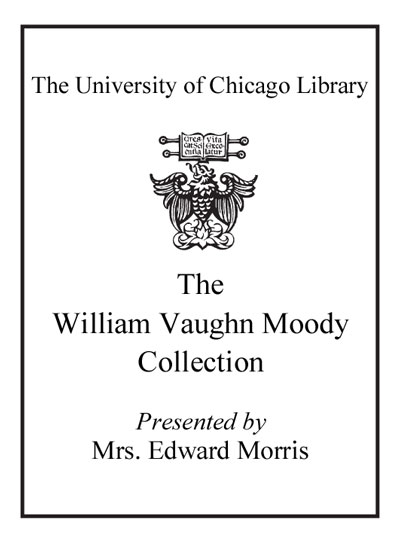Review by Publisher's Weekly Review
John Steinbeck's classic 1939 novel of Depression-era migrant workers fleeing the Dust Bowl retains much of its power thanks to a continued relevance, which Shillinglaw eloquently details. Published in connection with the 75th-anniversary edition of The Grapes of Wrath, Shillinglaw's book will make readers already familiar with the book want to assess it afresh. Those who have never dipped into this American classic will find the author, a Steinbeck scholar, a scintillating guide. Shillinglaw explores the novel's layers of meaning, richly mining cultural context, history, and social thought, as well as Steinbeck's own background, work process, and politics. The captivating result resembles an extended college lecture series, appealingly combining personal reflections and a conversational tone with accessible scholarship. Each chapter raises specific concerns, with one chapter addressing the integral role of women, while another looks at the 1936 strike in Steinbeck's hometown of Salinas, Calif., and his reaction. She elucidates themes, such as the individual versus the power of the collective, that run through Steinbeck's prose, while creating a history of the book itself. Steinbeck insisted that Julia Howe's "Battle Hymn of the Republic" be reproduced on the end papers of the original edition, and indeed, his own truth marches on. (Apr.) (c) Copyright PWxyz, LLC. All rights reserved.
(c) Copyright PWxyz, LLC. All rights reserved
Review by Library Journal Review
Released to coincide with Viking's 75th anniversary edition of John Steinbeck's The Grapes of Wrath, this book examines the Pulitzer Prize-winning novel's significance within the context of changing social, political, and scientific ideas since its first publication in 1939. Shillinglaw (English, San Jose State Univ.; Carol and John Steinbeck: Portrait of a Marriage) reads the novel through the lens of the ecological theories of Edward F. Ricketts, a marine biologist and one of Steinbeck's closest friends. She supports her reading with evidence drawn from some of Steinbeck's nonfiction, particularly Sea of Cortez. Shillinglaw provides, moreover, a richly detailed account of the growth of The Grapes of Wrath, including the origin of the title; Steinbeck's communications with his editor and proofreader; information on print runs, sales figures, and limited editions; and an assessment of its reception. She also devotes a chapter to John Ford's 1940 film version and its effect on the novel's reputation. -VERDICT This book will appeal to serious students of Steinbeck's work, particularly those interested in his connection to ecology and the environmental movement.-William Gargan, Brooklyn Coll. Lib., CUNY (c) Copyright 2014. Library Journals LLC, a wholly owned subsidiary of Media Source, Inc. No redistribution permitted.
(c) Copyright Library Journals LLC, a wholly owned subsidiary of Media Source, Inc. No redistribution permitted.
Review by Kirkus Book Review
A compact primer from a Steinbeck scholar on what she believes is one of the greatest works in the history of literature. Readers who agree that Steinbeck's Depression-era saga is the Great American Novel will be able to go deeper into its various layers with this guide, but there is no balanced argument here on a work that had a mixed critical reception upon publication and continues to polarize opinion. "The Joads are like the Israelites seeking the Promised Land in Exodus," writes Shillinglaw (English/San Jose State Univ.; Carol and John Steinbeck: Portrait of a Marriage, 2013, etc.) in one of many biblical comparisons. The scope and scale of Steinbeck's achievement elsewhere conjure comparisons with Shakespeare (Hamlet and King Lear in particular), Moby-Dick, Wordsworth and Blake, and the Arthurian Round Table. The book barely acknowledges lesser appraisals, brushing away criticisms like flies, acknowledging a mixed response but attributing much of the negativity to parochial concerns over its politics and the propriety of its language. Of the dialogue, the author admits, "some find it hokey. I don't. It seems to me pitch-perfect, concrete and exact, capturing the migrants' metaphoric speech patterns." Of the dismissal of the novel as "middlebrow," Shillinglaw counters, "That term might have pleased Steinbeck, since that's precisely what he was after.He wrote this book for mass culture." Perhaps the most revelatory thread in the study concerns Steinbeck's friendship with marine biologist Ed Ricketts, "a friendship almost unearthly in its intensity." "The intellectual and emotional bond between writer and scientista platonic lovewas so unusual, so forward-looking, and so fiercely linked to an understanding of humans and the environment," she writes, "that to see one is to see both and to understand both is to reconsider our own footprint in the world." An uneven celebration mainly for Steinbeck scholars and fans.]] Copyright Kirkus Reviews, used with permission.
Copyright (c) Kirkus Reviews, used with permission.
Review by Publisher's Weekly Review
Review by Library Journal Review
Review by Kirkus Book Review

